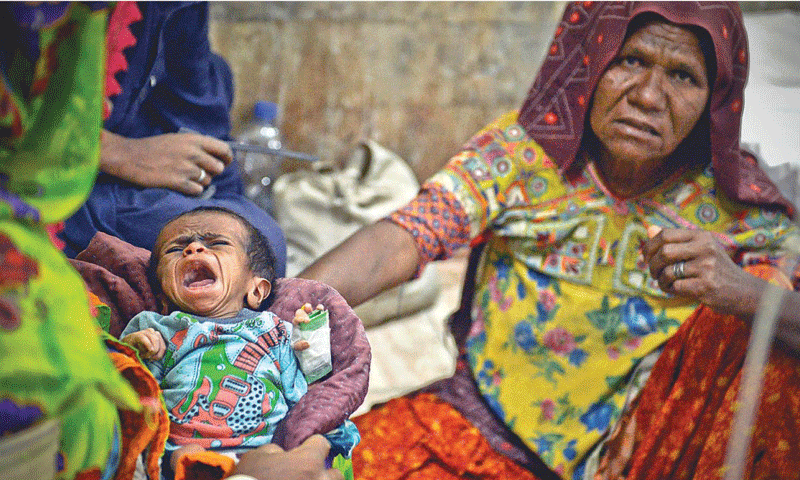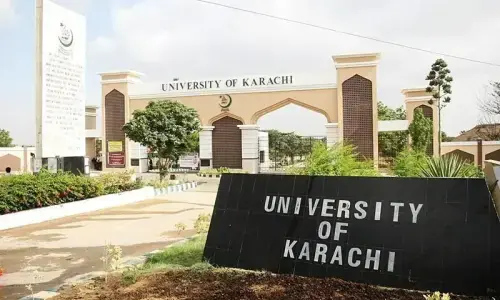KARACHI: Nearly 300 children have died this year in desert communities in Sindh, officials said Wednesday, as poor monsoon rains and livestock diseases have combined to worsen malnutrition.
The Thar desert, straddling the Indian border and one of Pakistan's poorest areas, has seen an alarming number of children suffering pneumonia or diarrhoea due to a dangerous mix of drought, poverty and poor health infrastructure.
The deaths have prompted criticism for the Pakistan People's Party (PPP), which governs in the southern province of Sindh where part of the desert is located.
A total of 496 people, 296 of them children, have died in Thar this year, Taj Haider, a senior PPP official with responsibility for the Thar situation, told AFP.
It may be mentioned that Senator Haider, who is the coordinator of the Tharparkar Relief Committee, had claimed earlier this month that the mortality rate among children in Thar was lower than the rest of the country because of relief measures taken by the provincial government.
Also read: PPP, MQM busy politicking over Thar
Since the start of October 48 children have died in Thar, according to doctor Abdul Jalil, district health officer for Tharparkar district.
This week around 40 children, some in critical condition, are undergoing treatment in a hospital in Mithi, the nearest town to the affected area, according to humanitarian sources.
Know more: Qaim dismisses child deaths from Thar famine
“The current situation is due to a combination of factors. Low rainfall and sheep pox exacerbated malnutrition and (there was) a lack of health care facilities,” a UN official told AFP.
Life in the desert is closely tied to rain-dependent crops and animals, with farmers relying on beans, wheat and sesame seeds for survival. They barter any surplus for livestock.
There are few health care facilities in the area, and families must travel substantial distances to seek treatment.



































